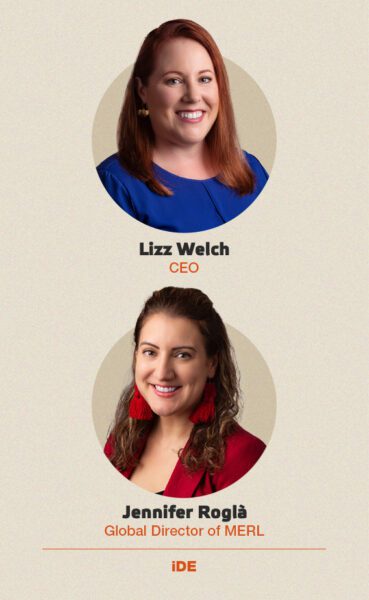Experiential Learning for Sustainable Development
Ignite India’s tailored, place-based approach

Is the field of sustainable, impact, and values-aligned investing losing the forest for the trees? Are we losing the point that the whole field, in the final analysis, is simply about investing? And, in particular, might we be losing touch with the most basic, foundational notion of what I’d call “First Principles Investing”.
Many people use the misleading term of “ESG Investing” to refer to the consideration of environmental, social, and governance (ESG) factors in their research. But there is actually no such thing as “ESG Investing.” It is not an asset class, a strategy, or a style. Rather, using “ESG analysis” is simply a robust investment research discipline that should be deployed systematically in properly analyzing the risk adjusted returns on any investment.
But, in the latest round of attacks on ESG as being political, ideological, and divisive, it seems as though we’re all getting lost in the trees and the leaves…and in the noise.
We need to get down to actual investing. It’s about the Company. What does it do? How does it do what it does? How well is it performing? Can it be a proxy for creativity, innovation, resilience, and growth?

All the noise, headlines, debates, ratings, rankings, algorithms, indices, ETFs…. all have systematically built-in flaws given that we don’t yet have the final framework for corporate disclosures of material ESG factors.
In that, we are making good progress globally, but it seems that in the investment field we may have lost one thing: The Company.
It can feel as though sometimes we don’t actually talk about the companies and their business models in the context of their vision, mission, purpose, values, strategy, and performance.
We can always look for compelling analogies from past investment cases. But they are not first principles, and they are often too simplistic or flawed.
So, let’s get back to First Principles in order to focus on what matters most in this incredibly complex world with so many crosscurrents, economically and geopolitically.
And, addressing complexity requires the kind of thinking that starts in the right place. This is thinking that allows for knowledge to be derived from systematic inquiry rather than just using analogies and assumptions.
Aristotle taught us that a First Principle is “the first basis from which a thing is known.” It is a foundational principle and stands alone. Plato helped us along by saying that “There’s no chance of their having a conscious glimpse of the truth as long as they refuse to disturb the things they take for granted and remain incapable of explaining them. For, if your starting-point is unknown, and your endpoint and intermediate stages are woven together out of unknown material, there may be coherence, but knowledge is completely out of the question.”
In other words, notwithstanding all of the exciting ESG datasets and platforms, algorithms, analytics and indices, benchmarks and tools, standards and assessments, the starting point for investing must not change.
Start with the company.
 The capital markets seem to have gone towards unnecessary complexity as ESG analysis is embraced even with best intentions. For a company, an organization, or even an initiative, achieving success requires a vision that has both simplicity and complexity. The latter may be necessary to achieving a sustainable competitive advantage. The former is critical so that the vision is easily articulated. I worry the world of ESG analysis may have lost its way somewhat. Investment starts with the company. An ESG datapoint or analysis that is material to a company’s fortunes is simply a starting point for further inquiry. It is not a “first principle” based upon which an investment can be made. It is not a foundational proposition. It does not stand alone. Investing is a complex business. So, we need to boil things down to fundamental truths in order to gain insight and avoid making systematic errors. The fundamental truth is that we are looking for great companies. We need to acquire knowledge about the company through questioning its model and operating environment, rather than through making an investment decision based upon a data point, rating, or ranking that is an aggregation, derivative or reflection of other datapoints.
The capital markets seem to have gone towards unnecessary complexity as ESG analysis is embraced even with best intentions. For a company, an organization, or even an initiative, achieving success requires a vision that has both simplicity and complexity. The latter may be necessary to achieving a sustainable competitive advantage. The former is critical so that the vision is easily articulated. I worry the world of ESG analysis may have lost its way somewhat. Investment starts with the company. An ESG datapoint or analysis that is material to a company’s fortunes is simply a starting point for further inquiry. It is not a “first principle” based upon which an investment can be made. It is not a foundational proposition. It does not stand alone. Investing is a complex business. So, we need to boil things down to fundamental truths in order to gain insight and avoid making systematic errors. The fundamental truth is that we are looking for great companies. We need to acquire knowledge about the company through questioning its model and operating environment, rather than through making an investment decision based upon a data point, rating, or ranking that is an aggregation, derivative or reflection of other datapoints.
If, in looking at a company’s ESG rating that is different from three different rating companies, or an ESG disclosure from a company that is presented in different format from that of another company in its sector, or an ETF with an algorithm that excludes a company while another similarly named ETF includes the same company, or looking at a rating system that includes ESG datapoints that are not material to a company’s financial outcomes, we can forget about the Company itself! In this process, there may be no systematic and constructive feedback loop so that we can dig into what’s really going on with the company. There are inadequate investment conclusions made without getting to fundamental truths. There is little opportunity to look deeper into the efforts, trajectory, objectives, and performance of the company.
Investing by First Principles can remove the faults that can multiply themselves with the use of assumptions and conventions. We can always look for compelling analogies from past investment cases. But they are not first principles, and they are often too simplistic or flawed. They are not primary research that leads to knowledge about a company. In fact, they may lead us astray…as with ESG ratings and rankings sometimes. There are some investors, typically in the institutional investment field, that want to understand “how to properly build the watch.” And there are some investors that simply need to know “how to tell the time.” There is room for everyone in the markets. But in the latter category, they’d probably rather buy their watch from those in the former. Should the watch be running slowly, it can be assessed and repaired. Should it become tarnished or damaged, the components can be replaced and the case can become brilliant again. Or perhaps it’s time for it to be retired.
So, as the field of Sustainable, Impact, Values-Based, and any other term for investing evolves, and the use of ESG Analysis becomes more understood as simply investment research, more information rather than less is generally good for a research analyst. An overwhelming amount of ESG information, that may or may not be material to the financial outcomes of the company, becomes noise and arguably distracts from focusing on the fundamentals…the fundamentals of the company. The first principle.
Related Content
Comments
Deep Dives
RECENT
Editor's Picks
Webinars

Featuring
Lizz Welch & Jennifer Roglà
iDE
May 16 - 12:00 PM EST
News & Events
Subscribe to our newsletter to receive updates about new Magazine content and upcoming webinars, deep dives, and events.
Become a Premium Member to access the full library of webinars and deep dives, exclusive membership portal, member directory, message board, and curated live chats.
0 Comments